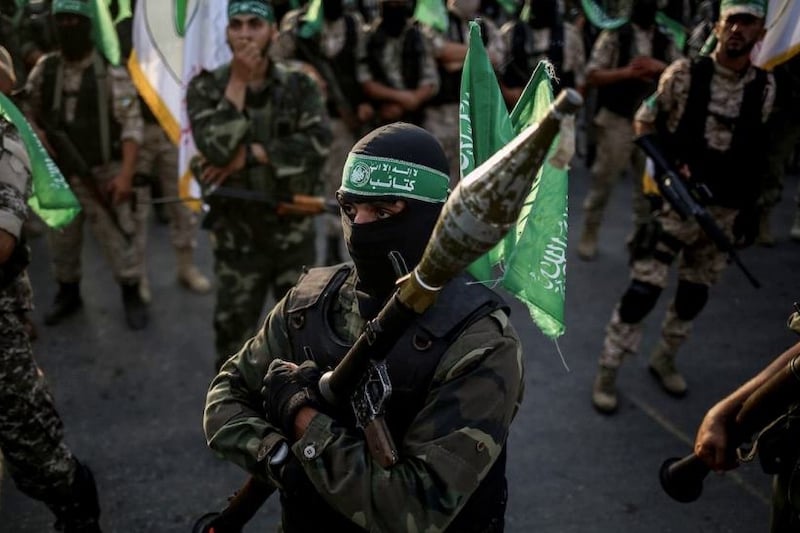The Israeli army announced on Saturday that starting Sunday, it will begin supplying Gaza Strip residents with tents and shelter equipment through the Kerem Shalom crossing, preparing to relocate civilians from the northern combat zones to what it calls “safe areas” in the south. This step precedes a wide-scale attack on Gaza City, considered by Israel as the last stronghold of Hamas, raising international concerns about the fate of over two million Palestinians living in a sector facing total collapse due to the ongoing 22-month war.
Military spokesperson Avichay Adraee explained that the United Nations and international relief organizations will handle the entry of shelter equipment after thorough inspection by the Ministry of Defense. However, he did not clarify whether the plans include evacuating nearly one million residents currently living in Gaza City or if the targeted area is Rafah near the Egyptian border.
Meanwhile, a report published by “Quds Press” revealed that the occupation army launched a “new phase” of its operations in Gaza City, led by the 99th Brigade, focusing on the remaining combat units of the “Al-Qassam Brigades.” The “Gaza Brigade,” which includes six battalions distributed across the eastern, western, and southern neighborhoods, is considered the “beating heart” of the organization, led by Ezzedine Al-Haddad (Abu Suhaib), nicknamed the “Ghost of Al-Qassam” in Israeli security circles, who survived six assassination attempts since 2008 and is described by Western media as the last remaining top leader inside the sector.
The “Gaza Brigades” engaged in battles described as “legendary” in Shuja’iyya, Sheikh Radwan, and around the Al-Shifa Medical Complex, where Israeli forces suffered heavy losses. Al-Qassam broadcasted footage showing the destruction of hundreds of vehicles and the setting of well-planned ambushes, while continuing to launch rockets at Israeli cities and settlements.
Conversely, Hamas accused Israel in a press statement of conducting a “systematic genocide” war on the eastern and southern neighborhoods of Gaza City, especially the Zeitoun neighborhood, which has been subjected to intensive aerial and artillery bombardment for a week, in addition to the use of “explosive robots.” The movement considered Israeli Prime Minister Benjamin Netanyahu’s statements about the “Dresden attack” as reflecting a “premeditated intention to commit massacres against civilians,” adding that what is happening in the south represents “a new chapter of occupation crimes.”
The statement also accused the U.S. administration of giving Netanyahu the “green light,” considering it a “real partner in a genocide war that history will not forgive,” and called on the United Nations and Arab and Islamic countries to “take urgent action” to stop what it described as a “criminal plan.” The movement also urged Arab and Islamic peoples to take to the streets in support of Gaza and rejection of “occupation crimes.”
Meanwhile, Israeli Defense Minister Yisrael Katz announced that plans for the new attack “are still being prepared,” but field operations have already intensified in recent days in the city’s outskirts. Residents of the Zeitoun and Shuja’iyya neighborhoods reported heavy bombardment that destroyed dozens of homes, while the army said it is carrying out operations to destroy tunnels and kill militants.
The war erupted on October 7, 2023, following a Hamas attack on southern Israel, which resulted in 1,200 deaths and 250 hostages according to Israeli statistics. Since then, the Israeli military campaign has claimed the lives of more than 61,000 Palestinians, according to the Gaza Ministry of Health, in addition to massive internal displacement of more than two million people and turning large areas of the sector into rubble.
Domestically, Israel is preparing for a large wave of protests tomorrow, Sunday, demanding an end to the war and the release of about 50 hostages still held in Gaza, of whom only 20 are believed to be alive. Companies and universities have announced full strikes in support of the hostages’ families.
On the diplomatic front, Egyptian and Qatari efforts to revive ceasefire negotiations remain stalled after last month’s failed round to reach a 60-day truce. While Israel continues preparations for what is described as the “most sensitive” operation in Gaza, humanitarian organizations warn that any wide-scale attack on the city could lead to an “unprecedented humanitarian disaster.”













Recommended for you
Talib Al-Rifai Chronicles Kuwaiti Art Heritage in "Doukhi.. Tasaseem Al-Saba"
Exhibition City Completes About 80% of Preparations for the Damascus International Fair Launch
Unified Admission Applications Start Tuesday with 640 Students to be Accepted in Medicine
Egypt Post: We Have Over 10 Million Customers in Savings Accounts and Offer Daily, Monthly, and Annual Returns
His Highness Sheikh Isa bin Salman bin Hamad Al Khalifa Receives the United States Ambassador to the Kingdom of Bahrain
Al-Jaghbeer: The Industrial Sector Leads Economic Growth